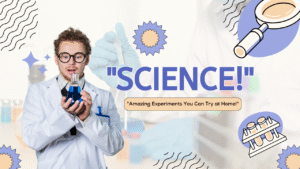Healthcare Innovations
Healthcare Innovations: Transforming the Future of Medicine
The world of healthcare is evolving at a remarkable pace. In 2024, new breakthroughs and advances are reshaping how medical professionals treat patients, detect illnesses, and save lives. From artificial intelligence and robotics to personalized medicine and wearable devices, these innovations are making healthcare more accurate, accessible, and effective than ever before. Let’s take a closer look at some of the latest updates in healthcare innovations and their impact on patients and providers alike.
1. AI-Driven Diagnosis and Treatment
Artificial Intelligence (AI) is revolutionizing the medical industry. Today, AI algorithms can analyze medical images like X-rays, MRIs, and CT scans with unprecedented precision. They can spot early signs of disease that might be missed by the human eye, making early diagnosis and treatment more effective. AI platforms can also analyse patient data to recommend personalized treatment plans. This is especially valuable in managing complex conditions like cancer, heart disease, and diabetes, where early intervention can save lives.
2. Robotic-Assisted Surgeries
Robotic surgeries are gaining popularity across the globe. Surgeons now have access to highly precise, robot-assisted tools that reduce the risk of complications, shorten recovery times, and minimize pain for patients. These robots can operate with precision far beyond the capabilities of a human hand, making surgeries for delicate areas like the brain, spine, and heart safer and more successful.
3. Smart Wearables and Remote Monitoring
Wearable devices like smart watches and fitness trackers have become an integral part of modern healthcare. These gadgets can track vital signs such as heart rate, blood pressure, blood oxygen levels, and activity patterns. In 2024, many wearables can also alert medical professionals if a patient’s vitals go beyond safe limits. This allows for early medical intervention and improves patient outcomes. Patients can now send their data directly to doctors, making remote patient monitoring a reality.
4. Genomics and Precision Medicine
The rise of genomics has transformed how we understand disease and design treatments. New advances in precision medicine enable treatments tailored to an individual’s DNA, making therapies more effective and reducing the risk of side effects. From rare genetic disorders to common illnesses like cancer and cardiovascular disease, genomics is allowing medical professionals to craft personalized treatments that fit each patient’s unique biology.
5. Tele health and Virtual Care
Tele health platforms have become a cornerstone of patient care in recent years, especially following the global pandemic. Patients can now consult with medical professionals from the comfort of their homes, eliminating the need for long trips and long waits. In 2024, tele health platforms have evolved further to support live video consultations, digital prescriptions, and even AI-driven chat bots that help assess patient symptoms before seeing a doctor.
6. Regenerative Medicine and Stem Cells
Breakthroughs in regenerative medicine are offering hope for patients with previously untreatable conditions. Stem cell therapy and tissue engineering have progressed significantly, allowing researchers to create organs, skin, and even bone tissue in the lab. In clinical settings, these advances are being used to treat patients with spinal cord injuries, severe burns, and degenerative illnesses, providing a new lease on life.
7. Medical Devices and Smart Implants
The medical device industry has embraced digital technologies like never before. Smart implants now come embedded with sensors that can send real-time data to doctors, allowing them to track patient recovery and adjust treatments instantly. Devices like implantable glucose monitors and pacemakers have become smarter, smaller, and longer-lasting, making life safer and more convenient for patients.
Final Thoughts
The latest updates in healthcare are reshaping how we understand, treat, and manage disease. From AI and robotics to genomics and wearable devices, these advances have made healthcare more patient-focused, precise, and accessible. As technology continues to evolve, we can expect even more breakthroughs that will redefine the boundaries of medicine and enable people to live longer, healthier lives. In 2024 and beyond, the future of healthcare shines brighter than ever.






































































Post Comment